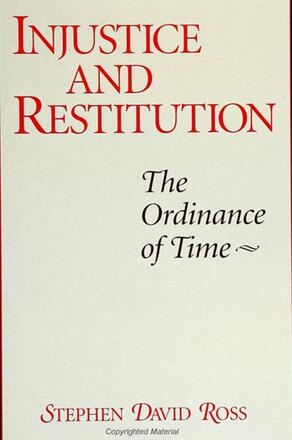
Injustice and Restitution
The Ordinance of Time
Alternative formats available from:
Description
This book addresses the nature and injustice of authority, retracing the ideas of reason and law from ancient Greece to the present, pursuing a line of thought begun with Anaximander, who speaks of the ordinance of time as restitution for immemorial injustice, and Heraclitus, who speaks of justice as strife. Predominantly philosophical, exploring the authority of Western philosophy in twentieth-century continental and pragmatist writings, the book explores alternative voices as challenges to authority, in feminist and multicultural writings, in Greek mythology and African narratives, in Greek drama and twentieth-century literature.
Stephen David Ross is Professor of Philosophy and Comparative Literature at the State University of New York at Binghamton. He is the author of A Theory of Art: Inexhaustibility by Contrast; Philosophical Mysteries; Perspective in Whitehead's Metaphysics; Metaphysical Aporia and Philosophical Heresy; Art and Its Significance: An Anthology of Aesthetic Theory - 2nd Edition; and The Ring of Representation, all published by SUNY Press.
Reviews
"The scholarship that informs this book is both broad and deep, excavating and articulating the ideas of justice, law, authority, and community from ancient Greece to the present. The main contribution Ross makes, however, is that he brings this wealth of scholarship to bear upon some of the most acute socio-political problems of our time. " — Calvin O. Schrag, Purdue University
"Ross approaches these issues with verve, acumen, and literary elegance. They are crucial to social, political, and legal philosophy, also to the social sciences, the humanities and jurisprudence. " — Fred Dallmayr, University of Notre Dame